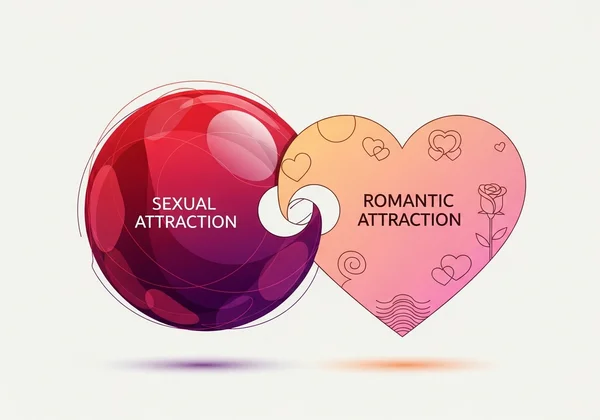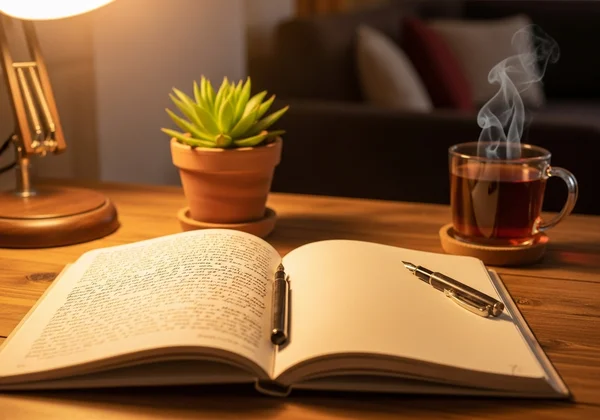Free Gay Quiz & Identity Guide: Exploring Your Sexuality
September 29, 2025 | By Isla Dawson
Welcome to your journey of self-discovery. If you're here, you might be feeling a mix of curiosity, confusion, and maybe even a little anxiety. That's completely okay. The process of exploring your sexuality is a deeply personal one, and it's a path many people walk. Is it normal to question my sexuality? Absolutely. It’s a sign of introspection and a desire to understand yourself on a deeper level. This guide is designed to be a safe, supportive starting point, offering clarity and reassurance as you navigate your feelings. Our platform is dedicated to making this exploration easier and life richer.

Understanding Your Sexuality: What Does It Mean?
Before diving into the "how," it's helpful to understand the "what." Sexuality is a fundamental part of who you are, but it's often more complex than we're led to believe. It’s not just about who you date; it’s about attraction, connection, and identity. Let’s break down some core concepts to build a solid foundation for your exploration.
Sexual vs. Romantic Attraction: Understanding the Differences
One of the first major points of clarity comes from separating different types of attraction. You might feel drawn to people in various ways, and they don't always align perfectly. Understanding this can be a huge relief.
- Sexual Attraction: This is about who you desire to have physical, sexual contact with. It's the craving for a physical connection with another person.
- Romantic Attraction: This involves the desire for a romantic relationship with someone. It’s about who you can imagine falling in love with, sharing emotional intimacy, and building a life together.
For some people, these two align perfectly. For others, they don't. You could be romantically attracted to one gender but sexually attracted to another, or experience these attractions in varying degrees. This complexity is normal and valid.

Is Sexuality Fluid? The Spectrum of Attraction
Many of us grow up with a very rigid, binary view of sexuality: you are either straight or gay. However, human experience is far more diverse. The concept of fluidity suggests that a person's attractions can change and evolve over time. What you feel today might not be what you felt five years ago or what you will feel in the future.
Think of sexuality not as two boxes, but as a wide, open spectrum of attraction. Some people are on one end, some are on the other, and many, many people fall somewhere in between. This spectrum includes identities like bisexuality (attraction to more than one gender) and pansexuality (attraction regardless of gender). Recognizing that your feelings don't have to be static can take a lot of pressure off.
Beyond Binary: Acknowledging Diverse Identities
The world of identity is rich and varied. Beyond gay and straight, there are countless ways people identify their orientation. This includes asexuality, where a person may experience little to no sexual attraction, and many other identities under the LGBTQ+ umbrella. The goal isn't to find the perfect label immediately but to know that there is a vast community and a language that exists to help people describe their unique experiences. This process is about finding what feels true for you, and you can explore your identity at your own pace.
How to Know Your Sexuality: Steps for Self-Reflection
There is no external test that can definitively tell you your sexuality. True understanding comes from within. The journey of how to know your sexuality is one of self-reflection, patience, and honesty with yourself. Here are some gentle, practical steps you can take to better understand your feelings.
Paying Attention to Your Feelings and Attractions
Start by simply observing your feelings without judgment. Who do you find yourself drawn to in movies, books, or real life? Who do you daydream about? Notice your emotional attraction as well as your physical reactions. Sometimes, societal expectations can make us suppress or ignore these feelings. Give yourself permission to just notice them. Let them exist without needing to immediately label or act on them.
Journaling and Self-Inquiry: Your Personal Space
Creating a private space for your thoughts can be incredibly powerful. Journaling allows you to explore your feelings freely, without fear of judgment. You don't have to show it to anyone. This is your personal space for self-discovery.
Try asking yourself some gentle questions:
- When I imagine a happy, fulfilling relationship, who am I with?
- Have I ever had feelings for someone of the same gender? What did that feel like?
- What fears or worries come up when I think about my sexuality?
Writing these things down can help you see patterns and connect with your inner truth.

Considering a Quiz: How Tools Like GayQuiz.org Can Help
While journaling is freeform, sometimes a more structured approach can provide new insights. This is where tools like an online sexuality quiz can be helpful. A well-designed quiz asks thought-provoking questions that can help you organize your feelings and see them from a new perspective.
Our quiz is designed as a safe, anonymous tool for self-reflection. It's not a diagnosis but a mirror to reflect your own responses back to you. It can serve as a fantastic starting point to kickstart your deeper self-exploration.
Questioning My Sexuality: Is This Normal?
If there's one thing you should take away from this guide, it's this: questioning my sexuality is completely, 100% normal. It doesn't matter if you're 16 or 60. This questioning is a healthy part of the human experience and a sign of a curious, evolving mind.
Why People Question Their Sexuality: Common Triggers
People begin questioning for all sorts of reasons. It might be a powerful dream, a new friendship, a character in a TV show that resonates deeply, or simply a growing feeling that the life path laid out for you doesn't quite fit. These triggers are invitations from your inner self to look closer and explore what truly makes you happy.
Navigating Societal Expectations and Internalized Messages
We all grow up absorbing messages from society, family, and media about what is "normal." Often, this means heterosexuality is presented as the default. Breaking away from these internalized messages is a courageous act. It can be confusing to untangle what you truly feel from what you think you should feel. Be patient and compassionate with yourself during this process.
Finding Support: Who Can You Talk To?
You don't have to go through this alone. Finding support is crucial. This could mean a trusted friend, a supportive family member, a school counselor, or an online community. The most important thing is that you feel safe and respected. Having someone to talk to can make the journey feel less lonely and help you process your thoughts. Building support networks is a key part of this journey.

Your Comprehensive Sexuality Guide: Key Concepts & Resources
As you continue on this path, knowledge is power. Arming yourself with information can demystify the process and help you feel more confident. This sexuality guide is a starting point, and we encourage you to keep learning.
Basic LGBTQ+ Terms Explained
Understanding the language can help you better articulate your own feelings and understand others. Here are a few basic LGBTQ+ terms:
- Gay: A person who is primarily romantically and/or sexually attracted to people of the same gender.
- Lesbian: A woman who is primarily attracted to other women.
- Bisexual: A person who is attracted to more than one gender.
- Pansexual: A person who is attracted to people regardless of their gender identity.
- Asexual: A person who experiences little or no sexual attraction.
What to Do After Exploring: Embracing Your Truth
The goal of this exploration is self-acceptance. Whatever you discover about yourself, know that it is valid and beautiful. This is your personal journey, and there is no right or wrong timeline. Some people find a label that fits perfectly, while others prefer to let their identity remain open. The only person you need to satisfy is yourself.
External Resources and Support Networks
While you navigate your journey, remember that incredible organizations exist to offer support and resources. Groups like The Trevor Project, GLAAD, and the Human Rights Campaign provide information, community, and crisis support for LGBTQ+ individuals. Knowing these resources are available can be a great comfort. For a guided first step in your exploration, you can always start the test on our homepage.
Your Journey Continues: Embrace Your Authentic Self
Exploring your sexuality is not about finding a final answer. It’s an ongoing journey of becoming more familiar and comfortable with your authentic self. Be patient, be kind to yourself, and celebrate every step of self-discovery. Your feelings are valid, your questions are important, and you deserve to live a life that feels true to you.
Ready to take a gentle, insightful step on your path? Try our free gay quiz now to gain new perspectives in a safe and supportive space.
Frequently Asked Questions About Exploring Your Sexuality
Am I gay, or just curious?
This is a very common question. Curiosity is often the first step toward understanding. It's okay to explore these feelings without needing to label them immediately. Whether it's a passing curiosity or a deeper part of your identity, allowing yourself to explore without pressure is the healthiest approach.
How can I truly know my sexuality if it feels fluid?
If your sexuality feels fluid, embrace that! It’s not a sign of confusion, but rather a reflection of the diverse nature of human attraction. Instead of seeking one permanent label, focus on what feels right for you in the present moment. Your identity is valid even if it changes.
Is it normal to question my sexuality, especially later in life?
Yes, it is completely normal. Many people question their sexuality later in life after new experiences or reflections. There is no age limit on self-discovery. Your journey is unique to you, and it unfolds on its own timeline.
Can an online quiz accurately tell me my sexuality?
No online tool can definitively tell you your sexuality. Your identity is yours alone to define. However, a tool like the GayQuiz.org quiz can be an excellent resource for self-reflection. It provides structured questions that can help you understand your own patterns of attraction and feeling, offering insights you may not have considered. Think of it as a helpful guide, not a final verdict.
What's the difference between being gay and bisexual?
The primary difference lies in the scope of attraction. A person who identifies as gay is typically attracted to people of the same gender. A person who identifies as bisexual is attracted to people of more than one gender. Both are valid and distinct identities within the LGBTQ+ community.